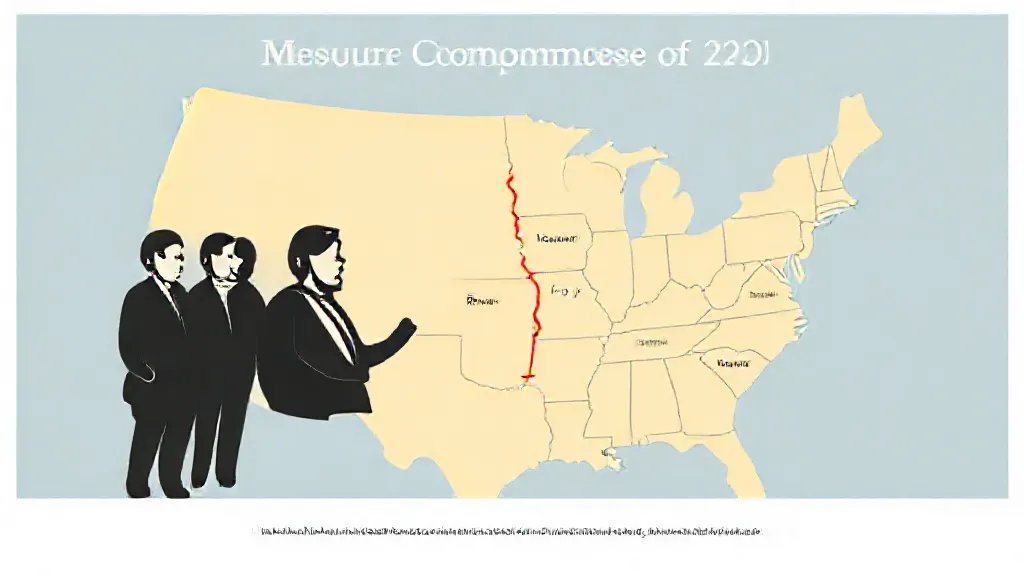The Missouri Compromise, enacted in 1820, played a pivotal role in shaping the early political landscape of the United States, particularly in relation to the contentious issue of slavery. This legislation emerged from a growing national divide between free and slave states, which threatened the fragile balance of power in Congress. The significance of the Missouri Compromise lies not only in its immediate effects on state admissions but also in its long-term implications for the nation's trajectory toward civil conflict.
Historical Context of the Missouri Compromise
In the early 19th century, the United States was expanding westward, raising critical questions about the status of slavery in new territories. By 1819, Missouri applied for statehood as a slave state, which ignited a fierce debate in Congress. The admission of Missouri would disrupt the balance of power, as it would increase the number of slave states relative to free states.
The resulting tensions led to a proposal by Representative James Tallmadge Jr., which sought to limit the expansion of slavery in Missouri. This proposal ultimately failed, leading to a legislative impasse.
Key Provisions of the Compromise
The Missouri Compromise was crafted to address the sectional conflict. It allowed Missouri to enter the Union as a slave state while simultaneously admitting Maine as a free state, maintaining the balance of power in the Senate. Additionally, the compromise established a geographic boundary at the 36°30' parallel, north of which slavery would be prohibited in the Louisiana Territory.
This provision aimed to create a clear demarcation between free and slave regions, though it was a temporary solution to a deeply rooted issue.
Political Ramifications and Reactions
The passage of the Missouri Compromise elicited mixed reactions across the nation. Many Northern politicians viewed it as a necessary compromise to preserve the Union, while Southern leaders saw it as a validation of their way of life.
The compromise temporarily quelled the immediate tensions, but it also entrenched sectional divisions. The political landscape began to shift, as new political parties emerged, and existing ones realigned based on their stance on slavery.
The Compromise's Role in Future Conflicts
While the Missouri Compromise was intended to be a solution, it ultimately highlighted the inability of political mechanisms to resolve the issue of slavery.
The compromise was tested by subsequent events, such as the annexation of Texas and the Mexican-American War, which further complicated the status of slavery in new territories. The Kansas-Nebraska Act of 1854, which repealed the Missouri Compromise, reignited sectional tensions and led to violent confrontations in Kansas, foreshadowing the Civil War.
Cultural Impact and Public Sentiment
The Missouri Compromise also had significant cultural implications.
It spurred a national dialogue about the morality of slavery and its expansion. Abolitionist movements gained momentum in the North, while Southern states fortified their defenses of slavery. Literature, speeches, and political debates reflected the growing divide, as Americans grappled with the ethical implications of slavery and the rights of states versus federal authority.
Legacy of the Missouri Compromise
The legacy of the Missouri Compromise is complex. It is often viewed as a failed attempt to address the issue of slavery, as it merely postponed the inevitable conflict. The compromise demonstrated the limitations of legislative solutions in the face of deeply entrenched social and economic systems.
The tensions it exacerbated ultimately contributed to the outbreak of the Civil War, making it a crucial moment in American history.
Conclusion: A Lesson in Compromise and Conflict
In retrospect, the Missouri Compromise serves as a poignant reminder of the challenges of governance in a diverse nation. It illustrates the difficulties of achieving consensus in the face of fundamental moral disagreements.
As a historical lesson, it underscores the importance of addressing contentious issues before they escalate into larger conflicts. The Missouri Compromise remains a significant chapter in the narrative of American democracy, reflecting the ongoing struggle between freedom and oppression.
